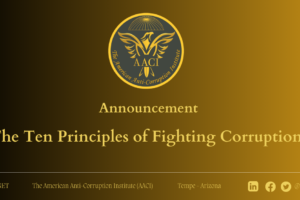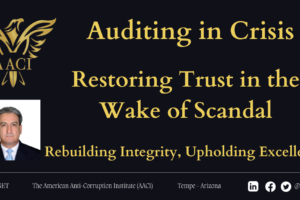December 20, 2022
Mike J. Masoud
In today’s world, it is no secret that power and leadership often go hand in hand. However, with great power comes great responsibility, and unfortunately, this is not always upheld. Power can often lead to corruption, with leaders succumbing to the temptations and pitfalls that come with it. This corruption can have serious consequences, not only for the leader themselves but for those they are responsible for leading and the society in which they operate. In this opinion piece, I will explore the perils of power and how it can lead to corruption in leadership.
One of the most prominent examples of the corrupting influence of power on leadership can be seen in the abuse of authority. When leaders hold a position of power, they may be tempted to use their position to further their interests or to benefit their group rather than serve the needs of the people they are responsible for leading. This can lead to many cases of abuse, such as embezzlement, nepotism, and favoritism, all of which can undermine trust and confidence in leadership.
Another way power can lead to corruption in leadership is by creating a culture of fear or intimidation. Leaders wielding their power in a heavy-handed or autocratic manner can create a culture of fear within an organization or society. This can lead to a lack of transparency and accountability, as individuals may be afraid to speak out against wrongdoing or corruption.
Furthermore, the pursuit of power itself can be a corrupting influence on leadership. When leaders are more focused on accumulating power and personal gain rather than serving the needs of the people they are responsible for leading, it can lead to a range of negative consequences. This can include a lack of transparency and accountability and a lack of focus on the needs and concerns of the people being led.
In conclusion, power can have a corrupting influence on leadership. While leaders need to hold a certain amount of power to lead and make decisions effectively, they must use their power responsibly and ethically. By recognizing the potential pitfalls of power and working to avoid them, leaders can strive to be more effective and trustworthy in their roles.
Photo by Kampus Production: https://www.pexels.com/photo/people-sitting-at-the-table-8190804/











































